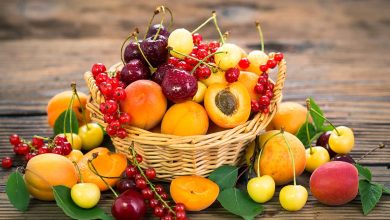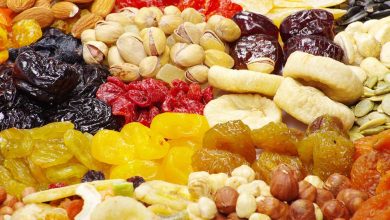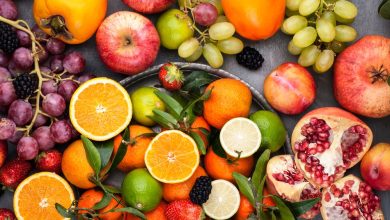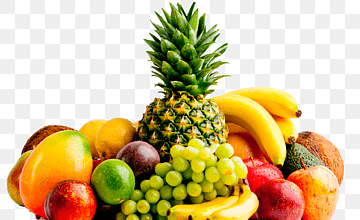The most useful fruits for well-being and summer mood
Summer is in full swing and store shelves are filled with fresh fruit. Fruit contains vitamins, polyphenols, minerals, probiotic fiber and antioxidants your body needs to feel good. Therefore, nutritionists recommend eating fruit 4-5 times a day. Of course.
you can always choose vitamins or biologically active supplements (BAA). However, there is evidence that it is better to opt for fruits that contain the necessary vitamin, as they have unique combinations of micronutrients that are not even in the best multivitamin complexes. Most of the fruits on our list are easy to find at your local supermarket and all have unique properties and are easy to add to your diet.
Grapefruit
Grapefruit – is at the top of the list if we are talking about the most useful fruits. A study in which 91 people took part showed that half a grapefruit before a meal will help you lose extra pounds. However, people who eat grapefruit have lower insulin levels and insulin resistance. Finally, pineapple is rich in vitamin C, a powerful antioxidant that can protect against autumn colds.
A pineapple
Pineapple is a real superstar among fruits. One cup of pineapple (237 ml) will provide you with an impressive 131% of the recommended daily intake of vitamin C and 76% of manganese. In addition, pineapple is an ideal source of the plant enzyme bromelain, which reduces inflammation in the body and protects against serious chronic diseases.
Avocado
If we think about the most useful fruits, it is impossible not to say about avocados. Avocado is not like other fruits. It is low in carbs and high in healthy fats. Avocado oil contains biotin, which is often used in cosmetics. It is quite high in heart-healthy oleic acid and monounsaturated fats. In addition, avocados are high in potassium, magnesium, and probiotic fiber. It’s hard to believe, but one medium-sized whole avocado contains 28% of the recommended daily intake of potassium.
Blueberry
It’s no secret that blueberries are incredibly healthy. These dark berries are high in vitamin C, vitamin K, manganese, and probiotic fiber. It is believed that blueberries are the leader among popular fruits and berries in terms of antioxidant content.
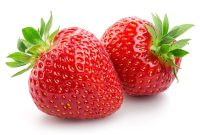
This berry contains a lot of polyphenols – plant substances that act as antioxidants in the human body and reduce inflammation. It is known that blueberries reduce the risk of neurodegenerative diseases and stimulate the brain. In addition, blueberries help the immune system. One study found that people who regularly eat blueberries had higher levels of NK cells, a type of lymphocyte that protects against oxidative stress and viral infections.
Apple
Apples are arguably the healthiest fruits on our list. They are high in fiber, vitamin C, potassium, vitamin B, and vitamin K. Studies show that the antioxidants in apples reduce the risk of heart disease, type 2 diabetes, cancer, and even Alzheimer’s disease. In addition, apples are rich in polyphenols, a significant part of which is found in the peel of the fruit. And of course, don’t forget about pectin, a probiotic fiber that feeds good gut bacteria, improving digestion and metabolism.
Pomegranate
If we are talking about the most useful fruits, it is impossible not to mention the pomegranate. In this fruit you will find a complete set of vitamins, minerals and antioxidants necessary for good health. What’s more, the level of antioxidants in pomegranate is higher than in green tea or red wine.
Mango
Mango is one of the best sources of vitamin C. It also contains soluble fiber, which has many health benefits. Therefore, the World Health Organization recommends eating 20-30 grams of fiber per day. And of course, mango contains antioxidants and anti-inflammatory substances that protect against various diseases. An animal study found that mango reduced the risk of type 2 diabetes.
Strawberry
Strawberries are our favorite berry. And of course, we cannot ignore strawberries when we talk about the healthiest fruits. Compared to other fruits, strawberries have a very low glycemic index. Like many other berries, strawberries are rich in antioxidants that protect against serious chronic diseases.
Cranberry
These small red berries have impressive properties. The combination of vitamins and minerals makes cranberries a unique fruit. In addition, it contains quite a lot of antioxidants – flavonoids, which have a healing effect. And cranberry juice helps with urinary tract infections due to the substance type A proanthocyanin, which prevents bacteria from attaching to the lining of the bladder and urinary tract.
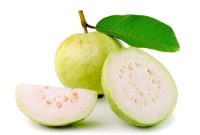
Lemon
Lemon is another healthy fruit that should have made our sleep list. Lemon is famous for its high content of vitamin C. In the 18th century, it was given to sailors to prevent scurvy. But this is not all that this citrus fruit can do.
Scientists believe that lemons strengthen the cardiovascular system by lowering lipid levels and normalizing blood pressure. There are several studies that claim lemon can help you lose weight. True, studies were carried out only on animals. Finally, lemon juice will help avoid kidney stones.
Watermelons are not only delicious, but also very healthy. It contains two extremely important vitamins at once – vitamin A and vitamin C. In addition, vitamin E, lycopene and cucurbitacin E can be found in it.
Therefore, watermelons deserve the title of “the most healthy fruit.” What makes watermelon a truly unique fruit is the carotenoid lycopene, which protects the cardiovascular system, reduces inflammation in the body, fights oxidative stress, and may even protect against sunburn.
So don’t forget to add some olive oil to your salad next time. Olives are an excellent source of vitamin E, iron, copper and calcium. Like avocados, olives contain monounsaturated oleic acid, which has been shown to protect against many serious diseases.
Blackberry
Blackberries are another interesting berry on our list. If you are looking for products with vitamin C and vitamin K, then blackberries are a great choice. It’s hard to believe that just one cup of blackberries (230 ml) contains 8 grams of probiotic fiber. And of course, blackberries are high in polyphenols and other antioxidants that keep free radicals from destroying body cells.
